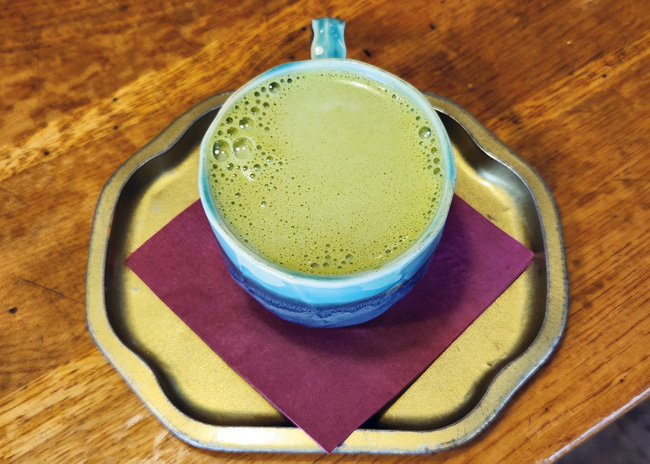From teas with functional ingredients to cocktails with botanicals, drinks are gaining a healthy dose of something extra these days.
An Inside Look at Demand
 In the past four years, there has been an increased demand for healthier beverage alternatives, according to Helen Jane Hearn, senior director of enterprise programs at the Washington, D.C.-based National Restaurant Association. Even with alcohol beverages, the idea of a better-for-you version appeals to consumers today. “Beverages of all kinds are being reformulated today with health in mind,” Hearn says. “Botanicals like basil, rosemary and lavender are being added to non-alcoholic drinks and used in a higher volume in alcoholic beverages.” Additionally, while Millennials are most responsive to healthy, indulgent beverage marketing, she says “Gen X and Gen Z are adapting, just more slowly.”
In the past four years, there has been an increased demand for healthier beverage alternatives, according to Helen Jane Hearn, senior director of enterprise programs at the Washington, D.C.-based National Restaurant Association. Even with alcohol beverages, the idea of a better-for-you version appeals to consumers today. “Beverages of all kinds are being reformulated today with health in mind,” Hearn says. “Botanicals like basil, rosemary and lavender are being added to non-alcoholic drinks and used in a higher volume in alcoholic beverages.” Additionally, while Millennials are most responsive to healthy, indulgent beverage marketing, she says “Gen X and Gen Z are adapting, just more slowly.”
By the Numbers
- Some of the fastest-growing ingredients paired with bubble tea include lychee (7.7%), mango (6.9%) and peach (4.2%). The top health claim paired with bubble tea is plant-based.
- Iced specialty tea with matcha is up 27.3% and bubble tea with matcha is up 6.3%.
- Some of the fastest-growing smoothie ingredients in the past year include dates (20%), nuts (16.7%), spirulina (15.4%), agave (11.1%) and oat milk (8.7%).
Source: Technomic Ignite Menu data, Q4 2022-Q4 2023
The Odd Couple No More: Healthy and Indulgent Beverages
Healthy, indulgent beverages can now translate to electrolytes in iced lattes or bone both in hot chocolate, according to Datassential. “In many ways, the growth of all the alternative sweeteners and milks is a bit of the intersection of striving for health while still getting the indulgence of a fun coffee drink,” says Claire Conaghan, associate director and trendologist at Datassential.
In a similar vein, recent smoothie innovation has leaned far more indulgent, with ingredients such as oat milk and coconut milk seeing healthy 12-month growth rates (65% and 26% respectively).
Concept Close-Up
Dobra Tea, Pittsburgh
In the healthy, indulgent beverage space, Dobra Tea offers non-alcoholic cocktails with tea — both sweet and unsweetened. The Pittsburgh tea concept opened in 2013 and serves more than 150 tea varieties, along with baked goods and light lunch fare. The tea house also has a range of sweet teas that are a mixture of different varieties and serve as beer substitutes. One simulates a lager with a crisp taste, while another is similar to an IPA; both have no alcohol.
“These are frothy like a beer and served cold in a pilsner glass,” says Nathaniel Pantalone, owner. “We have a total of eight varieties, but rotate, serving two at a time.”
Pantalone says experimenting with flavor combos has been helpful, especially when it comes to finding a balance with the right amount of sweetness. “With our drinks, we use the minimum amount of sweetener, no extra sugar or ingredients; we also allow customers to tweak the sweetness,” he says, adding that alternative sweeteners like honey and agave are popular. “We add our spices to the teas separately. This makes the preparation more difficult but allows the right balance to hit as a healthy indulgence.”
Dobra Tea’s chai is made with sugar and has cinnamon added to help regulate blood sugar levels. The menu also includes matcha tea, which is high in antioxidants and said to promote heart health and boost brain function, among other benefits.
“Matcha bubble tea is our most popular type, with the jasmine bubble tea a close second,” Pantalone says. “We are picky about our tapioca pearls, which are soft and made in-house daily from real tapioca with no additives.”
Dobra Tea’s equipment lineup includes induction ranges for making tapioca pearls, refrigeration for milk and milk substitutes and an ice machine.



